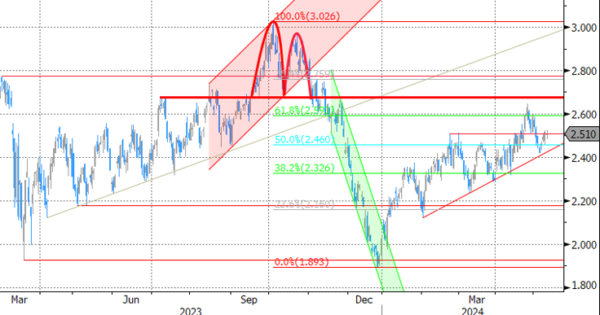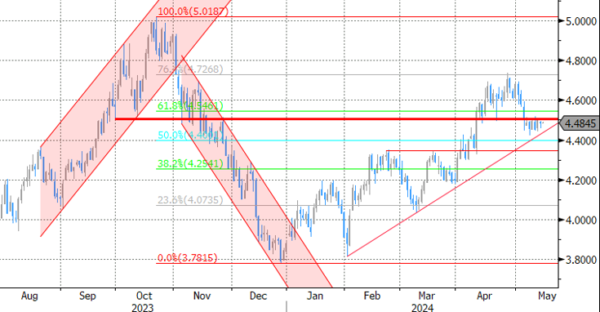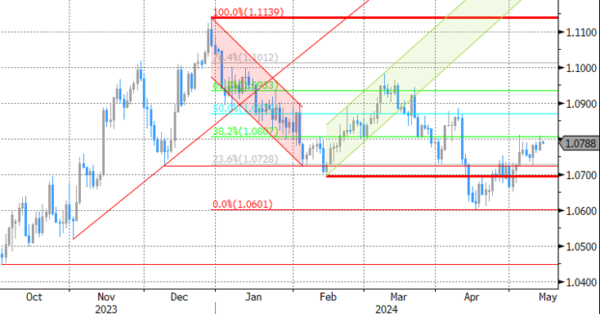Markets
Fed vice-chair Jefferson came with an important message to his colleagues. The current diversity of viewpoints among policymakers lends to stimulating debates and ultimately better policy. But… there’s a but… in such a situation, more communication could increase rather than reduce uncertainty about Fed policy. “The potential for misinterpretation is especially acute when many policymakers speak at the same time and disagree with each other”. Also the Summary of Economic Projections (including dot plot) serves as an additional source of volatility in uncertain, and rapidly changing, market conditions (rate outlook). Fed officials have been discussing alternative communication strategies after the previous meeting. An official strategic review including communication policy will start later this year. Earlier this month, the Bank of England received the results of a similar evaluation conducted by former Fed chair Bernanke. Jefferson confirmed the concerning lack of inflation progress in the first quarter, suggesting to keep the policy rate in restrictive territory awaiting that additional evidence. Unlike the FOMC statement, Jefferson didn’t specifically mention a policy rate cut. Fed Chair Powell speaks tonight at a special event organized by Netherlands’ foreign bankers’ association but its unclear if he’ll touch on monetary policy.
US April producer prices have the potential to move markets today. Another upward surprise would up the ante in the run-up to tomorrow’s CPI figures. Consensus expects 0.3% M/M and 0.2% M/M increases for headline and core PPI prints to day. The bar is higher tomorrow at 0.4% and 0.3% respectively. We have the feeling that especially tomorrow, even meeting this bar isn’t the hoped-for evidence that the disinflation process will continue. Therefore, and following the post-FOMC correction, we see asymmetric risks. US yields can then move again somewhat higher withing new trading ranges (4.75%-5.05% for 2-yr yield; 4.4%-4.75% for 10-yr). Such outcome should help the dollar holding above 105 support for the trade weighted greenback and below EUR/USD 1.0872 resistance.
UK labour market data were mixed this morning. April payrolls fell by 85k (vs +20k expected) but the March figure was upwardly revised from 67k job losses to only 5k. The unemployment rate ticked up from 4.2% to 4.3% in the three months to March. Wages rose slightly more than expected over that period (5.7% 3M/YoY). Sterling trades volatile not knowing to choose the weaker employment or the stickier wage inflation side.
News & Views
The NY Fed’s April survey of consumer expectations showed one-year ahead inflation expectations increasing to 3.3% from 3% in March. They also increased to 2.8% from 2.6% at a five year ahead horizon, but eased slightly to 2.8% from 2.9% at a three year horizon. Higher inflation expectations in the New-York Fed survey follow a rise in both one-year and longer time expectations in the consumer sentiment report of the University of Michigan published last week. Home price expectations in the NY-Fed survey also ticked up to 3.3% after seven consecutive months at 3%, reaching their highest level since July 2022. However, answers on the labour market, income and spending showed a more mixed picture. Spending growth expectations also increased (0.2% to 5.2%). Median expected household income eased slightly (0.1%) to 3%. The average perceived likelihood of voluntary and involuntary job separation declined, as did the perceived likelihood of finding a job in the event of a job loss.
Indian inflation eased only slightly in April to 4.83% from 4.85% in March. A further/faster decline in inflation was hampered by elevated food price inflation. Food price inflation (about half of the country’s inflation basket) rose 8.70% Y/Y in April up from 8.52 Y/Y in March. Inflation of most other components continues to ease. Fuel and power prices even were 4.24% lower. The Reserve Bank of India aims to bring inflation back to its 4% target. The April data suggest that it will keep its policy rate on hold at 6.5% at the next policy meeting early June. As is the case for several emerging market currencies, the Indian Rupee is trading in the defensive against a broadly strong dollar. At USD/INR 83.51, the Indian currency trades very close to the all-time lows reached last month (83.57).
Graphs
GE 10y yield
ECB President Lagarde clearly hinted at a summer (June) rate cut which has broad backing. EMU disinflation continued in April and brought headline CPI closer to the 2% target. Together with weak growth momentum, this gives backing to deliver a first 25 bps rate cut. A more bumpy inflation path in H2 2024 and the Fed’s higher for longer strategy make follow-up moves difficult. Markets have come to terms with that.
US 10y yield
The Fed in May acknowledged the lack of progress towards the 2% inflation objective, but Fed’s Powell left the door open for rate cuts later this year. Soft US ISM’s and weaker than expected payrolls supported markets’ hope on a first cut post summer, triggering a correction off YTD peak levels. Sticky inflation suggests any rate cut will be a tough balancing act. 4.37% (38% retracement Dec/April) already might prove strong support for the US 10-y yield.
EUR/USD
Economic divergence, a likely desynchronized rate cut cycle with the ECB exceptionally taking the lead and higher than expected US CPI data pushed EUR/USD to the 1.06 area. From there, better EMU data gave the euro some breathing space. The dollar lost further momentum on softer than expected early May US data. Some further consolidation in the 1.07/1.09 are might be on the cards short-term.
EUR/GBP
Debate at the Bank of England is focused at the timing of rate cuts. Most BoE members align with the ECB rather than with Fed view, suggesting that the disinflation process provides a window of opportunity to make policy less restrictive (in the near term). Sterling’s downside turned more vulnerable with the topside of the sideways EUR/GBP 0.8493 – 0.8768 trading range serving as the first real technical reference.




